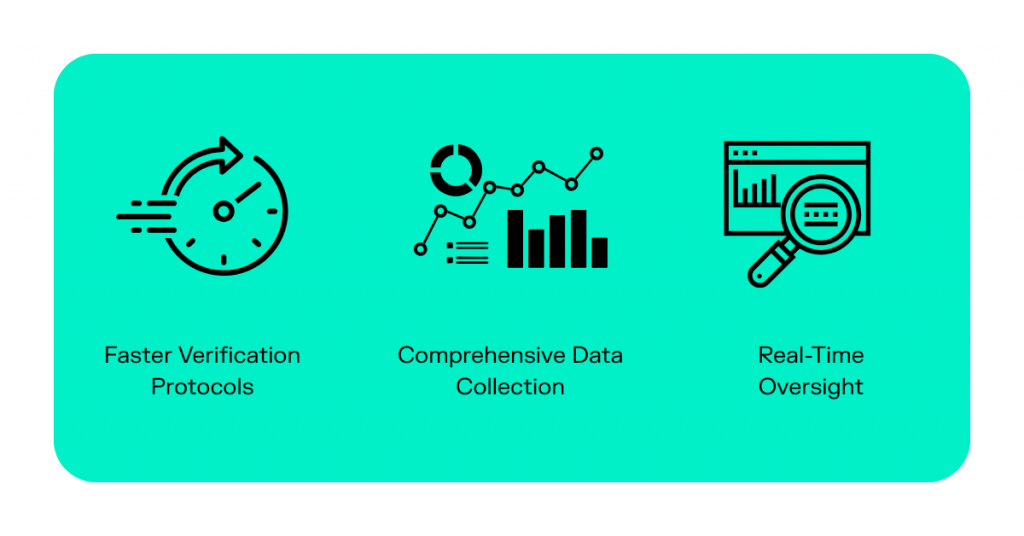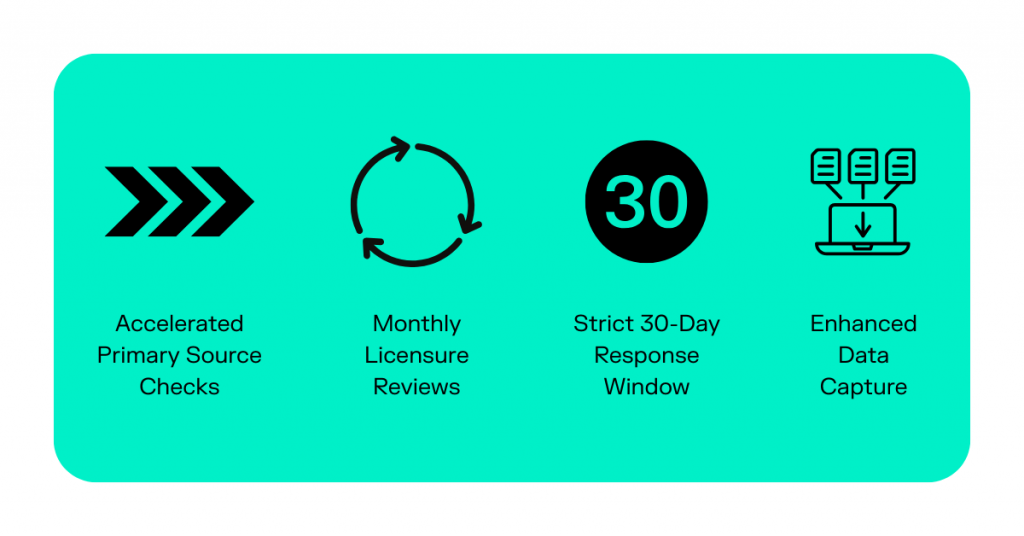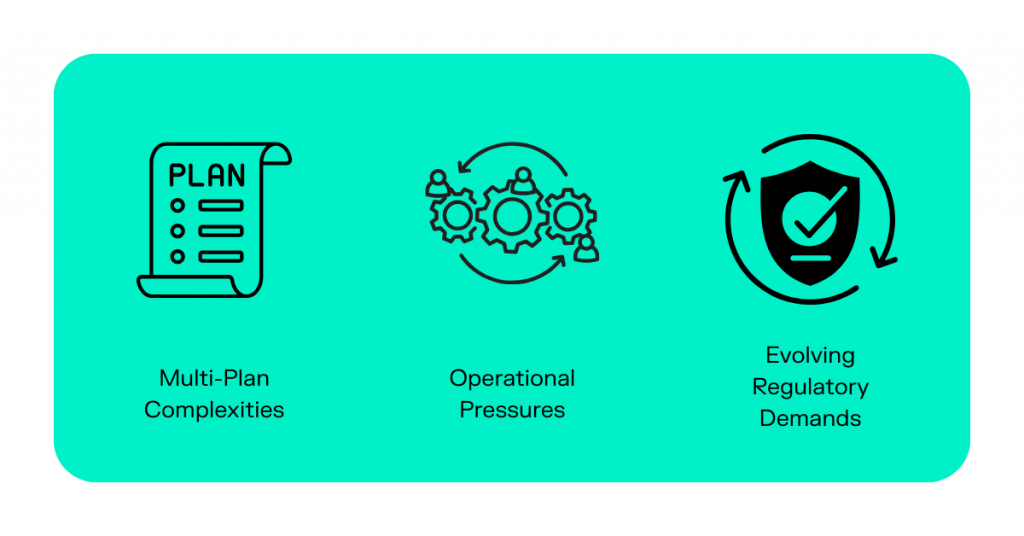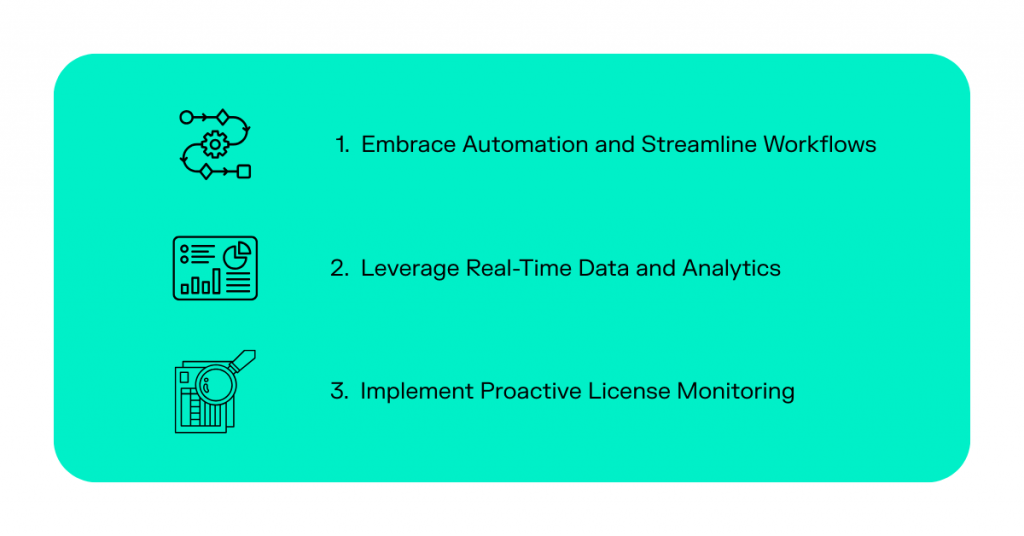As NCQA’s proposed changes for 2025 were approved and will take effect on July 1, 2025, healthcare organizations are presented with a pivotal opportunity to transform credentialing from a traditional administrative task into a robust, data-driven process. This transformation isn’t just about meeting new regulatory standards—it’s about creating a system that supports long-term operational resilience and improved patient care.
Why is NCQA Changing in 2025?
Credentialing is essential for ensuring patient safety, maintaining compliance, and fostering trust between providers, payers, and patients. However, many organizations still rely on manual processes that struggle to keep pace with evolving requirements.
NCQA 2025 serves as a catalyst for change in credentialing practices across the healthcare industry. By examining the challenges highlighted by recent market insights—from multi-plan complexities to the limitations of manual processes—organizations can adopt innovative, technology-driven solutions that address both compliance and operational efficiency.
The journey toward a modern credentialing process is not merely about regulatory adherence; it’s about building a resilient infrastructure that supports better patient outcomes, optimized resource allocation, and sustainable growth.
Key updates in NCQA 2025 include: 
- Faster Verification Protocols: The new standards demand more rapid primary source verifications, reflecting the need for timely and accurate provider onboarding.
- Comprehensive Data Collection: Expanded data requirements, including critical demographic and licensure details, provide deeper insights into provider networks.
- Real-Time Oversight: Specific benchmarks—such as monthly licensure reviews and a 30-day window for addressing expired credentials—highlight the importance of continuous monitoring to prevent compliance gaps.
What are the Key NCQA 2025 Changes?
NCQA’s updated requirements bring several new elements to the forefront, including: 
- Accelerated Primary Source Checks: Providers must now complete verifications faster than ever before.
- Monthly Licensure Reviews: Regular, scheduled reviews will ensure that provider credentials are current.
- Strict 30-Day Response Window: Expired credentials must be addressed within a 30-day period to maintain compliance.
- Enhanced Data Capture: A broader array of provider data will be collected, enabling deeper insights and more proactive compliance measures.
These changes are designed to push organizations toward more efficient, proactive credentialing practices, setting the stage for a more resilient healthcare system.
Credentialing Challenges Informed by Industry Insights
Recent industry observations have underscored several challenges that can impact both operational efficiency and financial performance: 
- Multi-Plan Complexities: Providers often enroll with multiple health plans, each with different recredentialing schedules. This multiplicity can lead to administrative redundancies that delay credentialing and complicate compliance efforts.
- Operational Pressures: Manual processes and disparate systems can hinder efficiency, leading to delays that may impact patient care and overall financial health.
- Evolving Regulatory Demands: With NCQA’s updated standards, the need for proactive and continuous monitoring has never been greater.
Best Practices for a Modern Credentialing Process
In response to these challenges, several strategies have emerged as best practices for updating credentialing processes: 
-
Embrace Automation and Streamline Workflows
- Consistent Timelines: Automated systems ensure that key deadlines—such as rapid primary source verifications and regular licensure reviews—are met without relying on manual tracking.
- Error Minimization: By reducing manual data entry, automation decreases the risk of errors that could lead to compliance issues.
- Resource Reallocation: With routine tasks automated, teams can focus on strategic initiatives and quality improvement rather than administrative backlogs.
-
Leverage Real-Time Data and Analytics
- Immediate Insights: Dynamic dashboards provide instant visibility into key metrics like verification status and application turnaround times, enabling proactive decision-making.
- Data-Driven Adjustments: Continuous monitoring supports early identification of issues, allowing organizations to intervene before delays escalate.
- Ongoing Process Improvement: A robust data strategy not only supports compliance but also drives continuous refinement of credentialing practices.
-
Implement Proactive License Monitoring
- Regular Reviews: NCQA’s revised requirements emphasize the need for monthly licensure reviews and a strict 30-day response window for expired credentials.
- Risk Mitigation: Proactive monitoring helps prevent disruptions—minimizing the risk of financial penalties and operational delays while ensuring that provider networks remain compliant.
- Integrated Systems: Seamless integration of licensure data with existing credentialing systems ensures that comprehensive provider information is always up to date.
Why RLDatix’s Credentialing & Privileging Solution?
Credentialing and compliance aren’t one-size-fits-all—and your approach shouldn’t be either. Whether you’re managing delegated relationships, navigating multi-plan recredentialing cycles, or preparing for NCQA’s updated standards, RLDatix helps bring structure and clarity to increasingly complex workflows.
- Built-In Flexibility to support monthly license checks, multi-source monitoring, and evolving NCQA guidelines
- Real-Time Insights through connected dashboards that support continuous oversight and audit readiness
- Integrated Data Management that reduces duplication and supports collaboration across compliance, credentialing, and enrollment teams
RLDatix supports healthcare organizations in moving from reactive compliance to a proactive credentialing strategy—strengthening care delivery while minimizing risk. Let’s build credentialing practices that evolve with your organization and the future of healthcare.
NCQA 2025 Changes
NCQA 2025 isn’t just a regulatory update—it’s an invitation to rethink and enhance your credentialing processes through technology and data-driven practices. By embracing automation, leveraging real-time data, and implementing proactive license monitoring, healthcare organizations can not only meet updated standards but also drive sustainable operational excellence.
Ready to elevate your credentialing strategy? Contact our experts today and discover how RLDatix can transform your processes for a future-proof healthcare organization.

